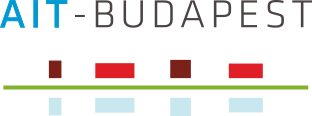Passport, Visa, and Residence Permit
Passport
In order to enter Hungary, students need a valid passport. Passports must be valid for at least 3 months beyond their planned stay in Hungary/Schengen zone.
Visa
Certain countries’ citizens need a visa to enter Hungary even as “tourists” and other citizens (such as U.S. citizens) do not need a visa to enter Hungary and spend less than 90 days. You may check on this link the countries whose citizens do not need a visa to enter Hungary. Please make sure to check not only the country but also the type of passport, since regulations may vary for holders of ordinary, diplomatic, or service passports!
Residence Permit
But, every foreign citizen wishing to stay longer than 90 days in Hungary has to have a residence permit, regardless of citizenship. AIT’s program lasts more than 90 days, so every student (except EU citizens) needs a residence permit to stay legally until the end of the program.
Citizens of those countries who need a visa to enter, must visit a Hungarian Embassy or consulate (from now on we’ll call them consulate) in person and apply for a residence permit before coming to Hungary. The process takes 30-60 days. The consulate keeps the applicant’s passport and mails it back with a visa in it, once it is issued. With that single entry visa, students can travel to Hungary and go to the immigration authority there in person to collect the residence permit (which will be ready to collect by then).
Citizens of those countries who don’t need a visa to enter can still choose to apply for a residence permit abroad at a consulate, OR they can choose to apply for it in Hungary after arrival. In this latter case, students are considered “tourists” until they get their residence permit and they will need to get a Consular Certificate from one of the Hungarian Consulates before they travel. The Consular Certificate can be obtained online, and is a letter on Hungarian Embassy letterhead and it is for the airlines to let students board the plane to Europe.
Whether a student needs a visa to enter Hungary or they don’t, AIT Staff is helping everyone with the necessary paperwork and useful information.
For those countries’ citizens who do not need a visa to enter, there are pros and cons to applying for a residence permit still in the U.S., or after arrival in Hungary. (This depends on several aspects like where the student is living geographically in the U.S., if the student plans international travels before traveling to Hungary, or whether are there any travel restrictions in the EU or not, etc.) AIT will share all aspects of making this decision and up-to-date information with students on time so they can choose the best way to proceed.
We do not list all aspects here since it can be complicated and also regulations may change. AIT monitors the changing regulations and provides suggestions to admitted students in time before the start of every semester.
Traveling
You may make travel arrangements through any experienced travel agent. Each of the agencies listed below has had experience arranging travel to Hungary for North-American students:
www.statravel.com
www.studentuniverse.com
www.bookingbuddy.com
www.raileurope.com
You should be aware that the cost of a flight to Budapest can vary as much as several hundred dollars from one travel agency to another or online. Shopping around to compare prices is a good idea.
When making your travel plans please bear in mind that prior to the semester we are organizing an orientation period with useful academic and non-academic information. This is also the period of registration and visiting the Immigration Office for residential permits.
Due to jet lag, you might be very tired during the first few days. Therefore, we recommend you arrive in Budapest one or two days prior to the beginning of your studies.
Health care and Insurance
AIT health care plan
The AIT health care plan was developed specifically for international students who speak English and are staying in Hungary for a semester. AIT is partnered with a healthcare service provider called Swiss Clinic (Swiss). Swiss provides access to 24/7 English-speaking emergency assistance and response service and includes several non-emergency doctor appointments throughout the semester at Swiss private clinics in different locations across Budapest. The AIT health care plan is included in the AIT tuition from the 2022 fall.
Insurance
Beyond the AIT health care plan it is mandatory for all students to have medical insurance for two reasons:
- to cover such treatments that are not included in the AIT health care plan (emergency medical care, surgeries, hospitalization, etc.)
- and to fulfill the Hungarian immigration authority requirements.
The Hungarian immigration authority requires students to hold medical insurance that meets the so-called "Schengen visa requirements".
We kindly ask every student to check with their insurance company - or study abroad office if the insurance is sponsored by their school - whether the current insurance policy meets the Schengen visa requirements.
These requirements are:
- A minimum coverage of at least 30,000 EUR (approximately 35,290 USD)
- Covers all member states of the Schengen Area
- Covers any expenses which might arise in connection with repatriation for medical reasons, urgent health attention, and/or emergency hospital treatment or death, including repatriation of remains
Students will have to obtain a short letter from their insurance company explaining the details of their coverage, which can be presented at the Consulate when applying for a visa, or to the Hungarian immigration authority upon arrival.
Things to take along
Don't forget your passport, airline ticket, a major credit or debit card, and a sufficient amount of money in cash to cover immediate expenses upon arrival. A dozen extra passport-type photos may come in handy. We recommend that you carry important names and telephone numbers (such as AIT staff phone numbers and campus address) with you in your carry-on luggage.
It is important that you bring an ample supply of any medicine you frequently use. Take shoes and clothes appropriate for all seasons. Apartments come completely furnished with such things as furniture, sheets, towels, kitchenware, etc. Clothes dryers are not used in Hungary.
While traveling, keep your passport, cash, and a week's supply of any vital medication in your carry-on luggage. Although unlikely, it may happen that checked baggage is put on the wrong plane. At check-in time, make certain your baggage is labeled inside and out with your final destination: AIT-Budapest, Záhony u. 7., Budapest, 1031, Hungary.
The voltage used in continental Europe is 220 V. This renders most American appliances useless unless they are convertible, battery-operated, or you have an adapter. Note that the outlet geometry is also different. For battery-operated devices, it may be advisable to take a set of spare batteries along for the trip. Sometimes, it may be difficult to get the right size battery.


